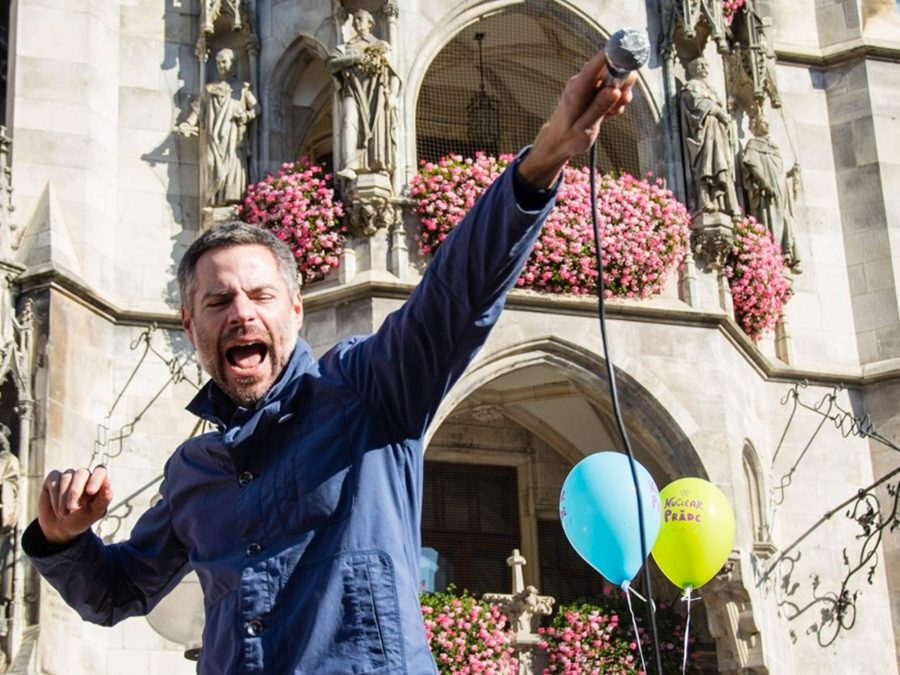“Nothing is real socially until it is expressed,” a biographer tells Sylvie, the women at the center of Nelly & Nadine, a documentary that had its North American premiere at the Hot Docs Festival in Toronto. Sylvie is attempting to piece together her grandmother’s story. She had been brought up believing that her grandmother Nelly, a Holocaust survivor, lived platonically with her friend and fellow survivor Nadine after being liberated. Only after discovering troves of footage and letters does Sylvie realize that there is more to her grandmother’s relationship and identity — a truth that was equally suppressed by society and Sylvie’s own family; a truth that can be freed if it is simply spoken.
Nelly & Nadine is one documentary of the festival’s many that acknowledges what it means to exist in this world and the world of the past as part of the LGBTQ+ community. Boylesque and Silent Love are two other examples. They both focus on Polish subjects: the former follows an 82-year-old Polish drag queen while the latter sees a lesbian woman return to her home in Poland following the death of her mother. These documentaries make for crucial viewing as a wave of anti-LGBTQ legislation has swept the country in the last four years, reminding us of how much pain and suffering there is in having to hide your identity.
As Nelly & Nadine wasn’t the only film to focus on an LGBTQ couple, it was also far from the only documentary to focus on the Holocaust. How Saba Kept Singing and Housewitz showcase how Holocaust survivors cope with their trauma, in both tragic and comic ways, and The Art of Silence tells Marcel Maurceau’s story, a Jewish mime who took part in the French Resistance during World War II.

This year’s Hot Docs screened films where documentarians and their subjects alike expressed fear, frustration, and hope for the future — making it a worthy selection to represent the festival’s return to theaters after having gone virtual in 2020 and 2021 due to the COVID-19 pandemic.
The featured environmental documentaries are also ones that embody all of these sentiments, particularly when it comes to the topic of nuclear energy. Burial argues against the use of nuclear energy, taking us on a tour of radioactive waste in a meditative, abstract fashion, while Atomic Hope – Inside the Pro-Nuclear Movement envisions a future where nuclear energy is the environment’s sustaining hope. War and Peace (2002), on the other hand, isn’t so much concerned with nuclear energy’s impact on the environment as the danger nuclear weapons pose in the hands of power-hungry rulers. Indian documentarian Anand Patwardhan tackles the arms race between Pakistan and India, platforming students, farmers, military personnel, and even Hiroshima survivors, to paint a concerning picture of the possible future of conflict, while preserving hope that those who oppose nuclear warfare will be able to get their message heard.
War and Peace is not a recent documentary — it celebrates its twentieth anniversary this year — and was included in this festival as Patwardhan was awarded this year’s Outstanding Achievement Award. A Time to Rise (1981), Father, Son, and Holy War (1994), and Reason (2018) also played at the festival as part of this distinction. Patwardhan, who has faced censorship in his home country, doesn’t host his work on any major streaming platform and so not only is Hot Docs bringing attention to a filmmaker who has been producing important stories for fifty years, but they are making his work accessible, even if for only ten days.
Patwardhan was not the only documentarian to have a collection of his work featured: Hot Docs also screened four of Canadian director Raymonde Provencher’s films, all of which focus on global human rights issues. War Babies (2002) and Grace, Milly, Lucy … Child Soldiers (2010) showcase the devastating effect conflict has on children, while Crimes Without Honour (2012) and Café Désirs (2015) focus on the experiences of marginalized individuals — women and gay men, respectively — in repressive communities.
And as the largest documentary festival in North America is held in Canada, the array of Canadian documentaries, alongside those of Provencher’s, spotlit important stories within the host country. Beautiful Scars, The Kids in the Hall: Comedy Punks, and Okay! (The ASD Band) feature Canadian icons, from musicians to comedians; Unikkaat Sivunittinnit (Messages from the Past) showcases the power of song to unite an Indigenous community; and Unloved: Huronia’s Forgotten Children and The Unsolved Murder of Beverly Lynn confront the Canadian institutions that failed their most vulnerable populations, as care centers for those with disabilities and bringers of justice for victims of violent crimes.
Sixty-three countries were represented in this year’s Hot Docs. These films tell stories belonging to those attempting to reconnect with the past and those attempting to build safer, cleaner, freer futures, through song, activism, and protest.
The post Hot Docs’ far-reaching programme imagines a clean, free and just future appeared first on Little White Lies.
from Little White Lies https://ift.tt/DpfuRct
via IFTTT

0 Comments